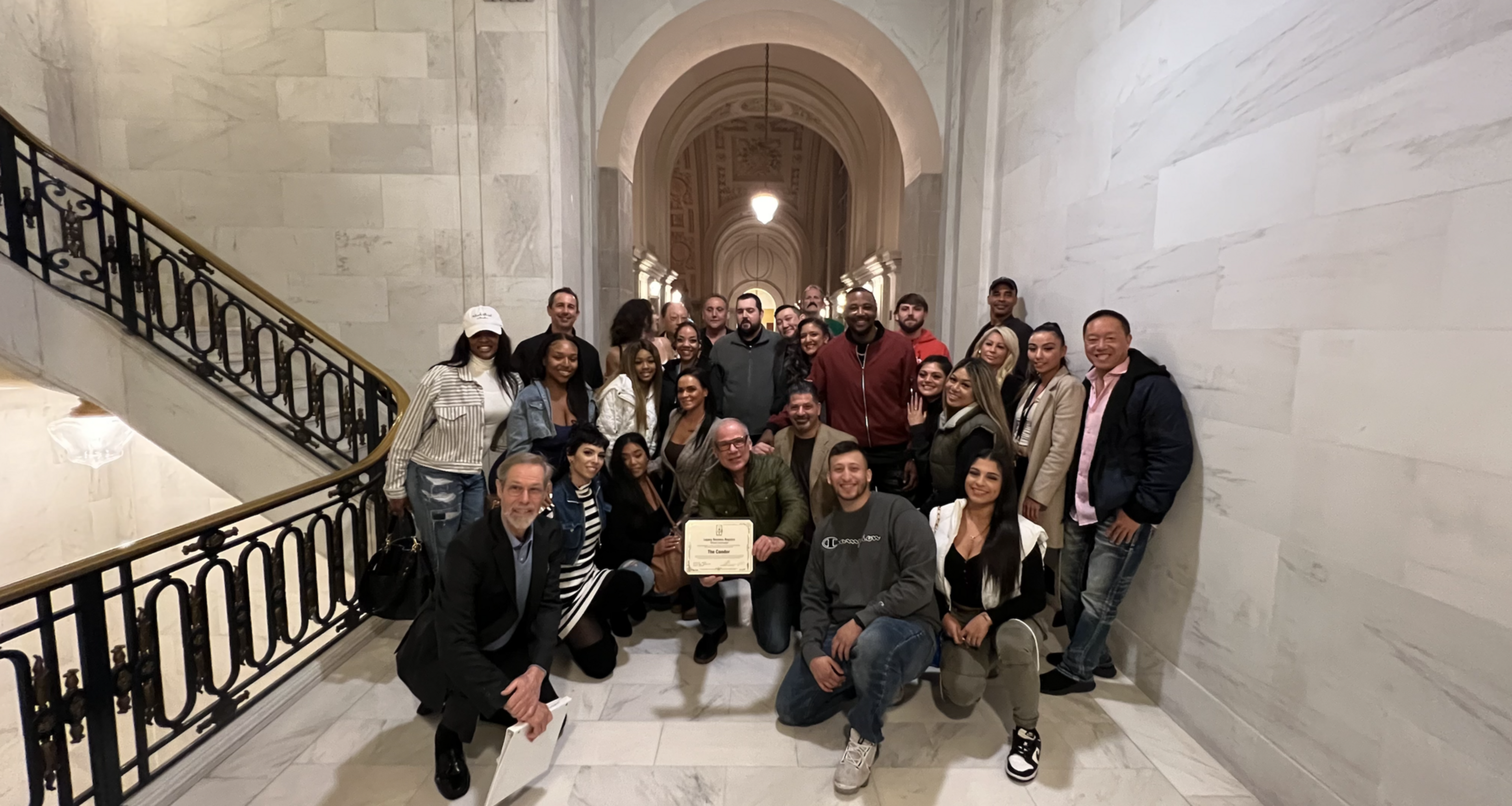Update: San Francisco’s Small Business Commission on Monday evening added The Condor Club to the city’s Legacy Business Program.
San Francisco has honored hundreds of businesses as part of its Legacy Business Program, from an anime company in Japantown (opens in new tab) and a butcher shop in Bernal Heights (opens in new tab) to 56 restaurants and 33 bars scattered across the city.
But on Monday, San Francisco will finally be comfortable enough to call it a day and take its bra off.
The city’s Small Business Commission will meet in the afternoon for a final vote to add The Condor (opens in new tab), a “gentleman’s strip club” in North Beach, to its legacy business list. The city already has two adult stores in the program, but it has never gone topless.
The Condor—which has been dubbed the “world’s first topless bar” (opens in new tab)—first opened its doors in 1958 and primarily operated as a music venue. Notable acts have included Bobby Freeman, The Righteous Brothers and Sly Stone. But the club’s claim to fame occurred on June 19, 1964, when cocktail waitress Carol Doda became the first woman in the city—and by most estimations the entire country—to dance completely topless.
San Francisco police arrested Doda months later for indecency, setting off a landmark court case in which she was acquitted and the courts acknowledged a woman could dance for dollars without pasties or other nipple covers.
Definitions of what constitutes a topless bar are a bit subjective, but The Condor does appear to be the first club in the U.S. in which nipple covers were explicitly expected to take the night off. Doda, who died in 2015 at age 78, is widely credited with starting the topless revolution (opens in new tab) in the 1960s. She was known for her dramatic stage performances atop a white grand piano that came down from the ceiling.
The court saga and Doda’s life have been thoroughly covered over the years, including in the book Three Nights at The Condor (opens in new tab) by Benita Mattioli—wife of Pete Mattioli, a Condor co-owner at the time of The First Dance. A documentary, Topless at The Condor, is expected to come out next year. (NSFW Warning: The trailer below includes nudity.)
“[Doda] was very nice, very congenial,” Benita Mattioli told The Standard in a phone interview. “She was friendly, funny—she had a great sense of humor. And she was determined to do what she wanted to do. Women were breaking all the rules. They were taking the rules—and the bras—and throwing them out.”
Mark Calcagni, general manager of The Condor, said the perks of joining the Legacy Business Program (opens in new tab) go well beyond economic help in what has been a trying economic time during the pandemic. Businesses get recognition and marketing assistance from the city, stipends to cover employment costs and access to the rent stabilization grant.
“To be a part of history—to be the first adult entertainment strip club to be legal in America, it’s overwhelming,” Calcagni said. “And where The Condor is placed, on the corner of Columbus [Street] and Broadway, that’s the gateway to North Beach.”
Condor management approached Supervisor Aaron Peskin, who represents North Beach as the supervisor for District 3, and asked him to nominate the business earlier this year. A legacy business has to have operated in San Francisco for 30 years or more, had no break in operations for more than two years and contributed to San Francisco’s history or identity in some way.

Peskin said he didn’t think twice about writing a nomination letter to the Office of Economic and Workforce Development recommending The Condor’s addition to the legacy list.
“I said, ‘Of course, I will.’ That is a seminal part of the North beach landscape for many many decades, and it’s synonymous with San Francisco,” Peskin said. “San Francisco has been a sex-positive city since the 1960s. It’s part of the legacy business landscape of North Beach and the city.”
Since the state enacted AB 5, which the state Legislature passed in 2019 to reclassify independent contractors such as dancers to hourly employees, The Condor pays its entertainers an hourly wage on top of a portion of the tips they receive. The Condor has almost three dozen entertainers.
“Many of them go to school and have other mainstream jobs,” said Joey Felder, a manager at The Condor. “Frankly, most entertainers make more money at Condor than most people working a 40-hour work week.”
Monday’s vote is expected to be a matter of course.
“Most of [the nominations] sail through,” said Gloria Chan, communications director for the Office of Economic and Workforce Development. “I don’t think any small business hasn’t gone through.”

